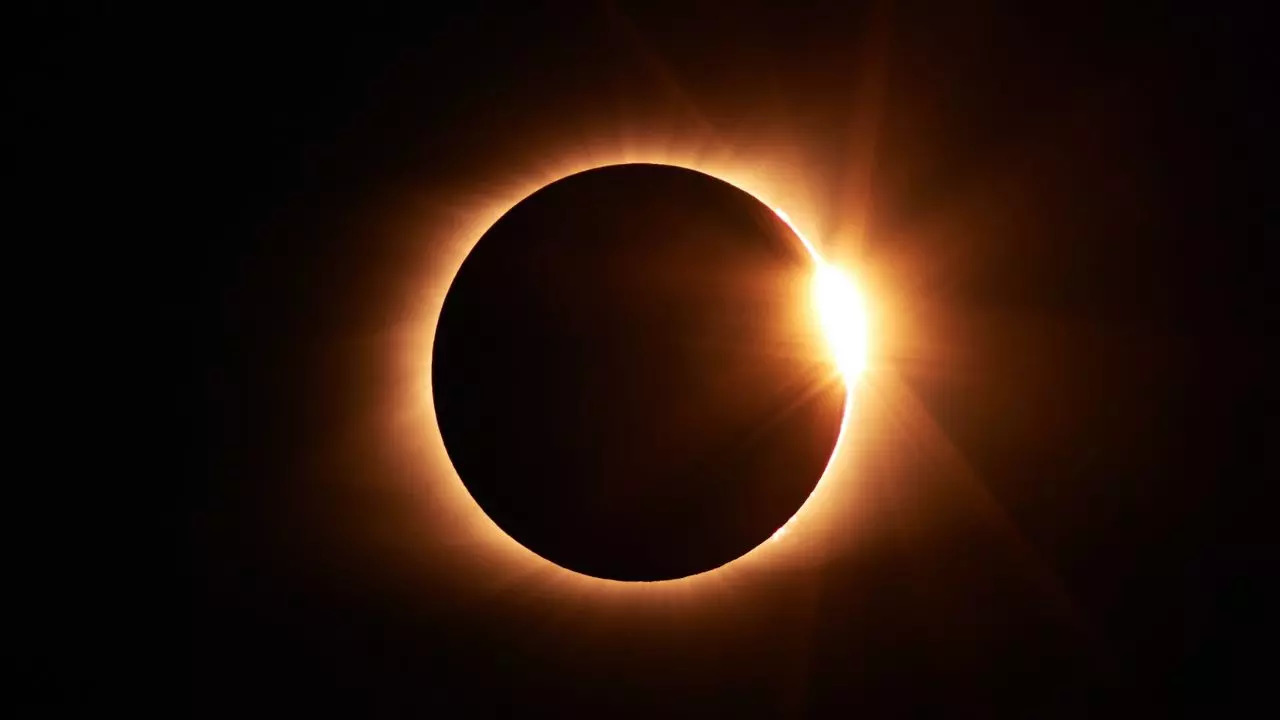Trending:
NASA To Launch 3 Rockets During The Solar Eclipse Next Week: Here Is Why
NASA plans to launch three rockets during the upcoming total solar eclipse on April 8. Here's everything you need to know about the extraordinary mission.

NASA plans to launch three rockets during the total solar eclipse next week.
On April 8, an extraordinary event will captivate millions across parts of the U.S., Canada, and Mexico as the moon gracefully slides in front of the sun, casting a spell of darkness known as a total solar eclipse. While sky gazers prepare to witness this celestial spectacle, NASA engineers in Virginia are gearing up for a groundbreaking mission – launching rockets directly into the shadow of the eclipse.
This ambitious endeavour isn't just about the thrill of sending rockets into space during an eclipse – it's driven by a crucial scientific goal. NASA aims to seize the fleeting moments of darkness to unravel the mysteries surrounding our planet's atmosphere and how it reacts to abrupt changes in sunlight.
When day abruptly transitions into night during an eclipse, temperatures plummet, and animals sometimes behave as if night has fallen. But what about Earth's upper atmosphere, the ionosphere, which lies between 55 to 310 miles above the surface? This is where the real magic (and mystery) unfolds.
Normally, the sun's ultraviolet radiation triggers a process where electrons are stripped from atoms, creating a swarm of charged particles that form the ionosphere. As dusk approaches, these ions recombine into neutral atoms, only to be recharged at dawn. It's like a delicate pond disturbed by the eclipse's metaphorical motorboat.
To shed light on these phenomena, NASA plans to launch three rockets: one before, one during, and one after the moon's shadow turns day into night. By doing so, they hope to gather enough data to predict disturbances in the ionosphere, which can wreak havoc on radio and satellite communications.
Leading this groundbreaking mission is Aroh Barjatya and his team from Embry-Riddle Aeronautical University. They will conduct the launches from NASA's Wallops Flight Facility on Wallops Island, Virginia. Although the eclipse will block only 81.4% of the sun's light over the facility, the team aims to capitalise on this dimming to study the extent of the "wake" generated by the eclipse.
This isn't NASA's first dance with eclipses. Last October, during a partial "ring of fire" solar eclipse, Barjatya's team launched rockets, revealing disruptions in communications caused by the sudden drop in sunlight. These findings underscored the urgency of improving our ability to predict such disturbances.
"We are super excited to relaunch the rockets during the total eclipse, to see if the perturbations start at the same altitude and if their magnitude and scale remain the same," said Barjatya, emphasising the importance of this next phase of research.
So, as millions of eyes turn skyward to witness the awe-inspiring spectacle of a total solar eclipse, NASA's engineers will be busy launching rockets into the shadow, unlocking secrets hidden within the dance of light and darkness that envelops our planet.
Trending:

Shubham Arora author
Shubham, with an experience of 6 years, is a passionate tech enthusiast whose world revolves around smartphones and gadgets. His love for gizmos and g...View More
End of Article
Subscribe to our daily Newsletter!
Related News





Redmi 13 5G Review: 4 Reasons To Buy, 1 To Skip

Honor 200 Review: A Good Mid-Range Camera Phone

India's First Fully Robotic Telescope Captures Asteroid Zipping Through Sky At 28,900 km/h

NASA James Webb Telescope Captures Rare Image Of Giant Exoplanet In Nearby Solar System

Zomato Brand Packs Will Let You Get Extra Discounts: What They Are And How They Benefit You








